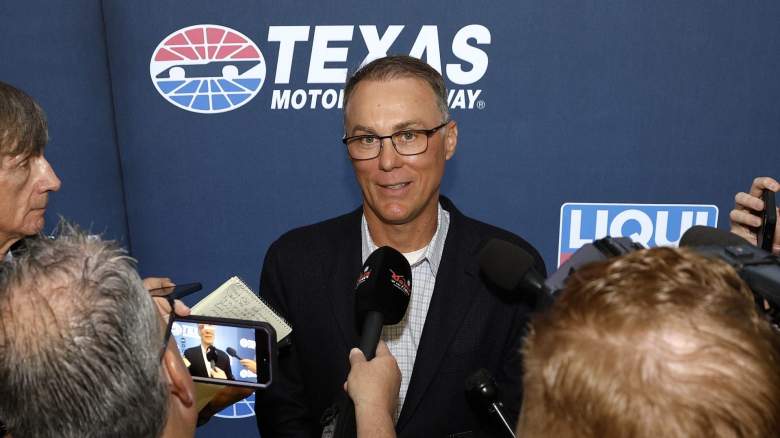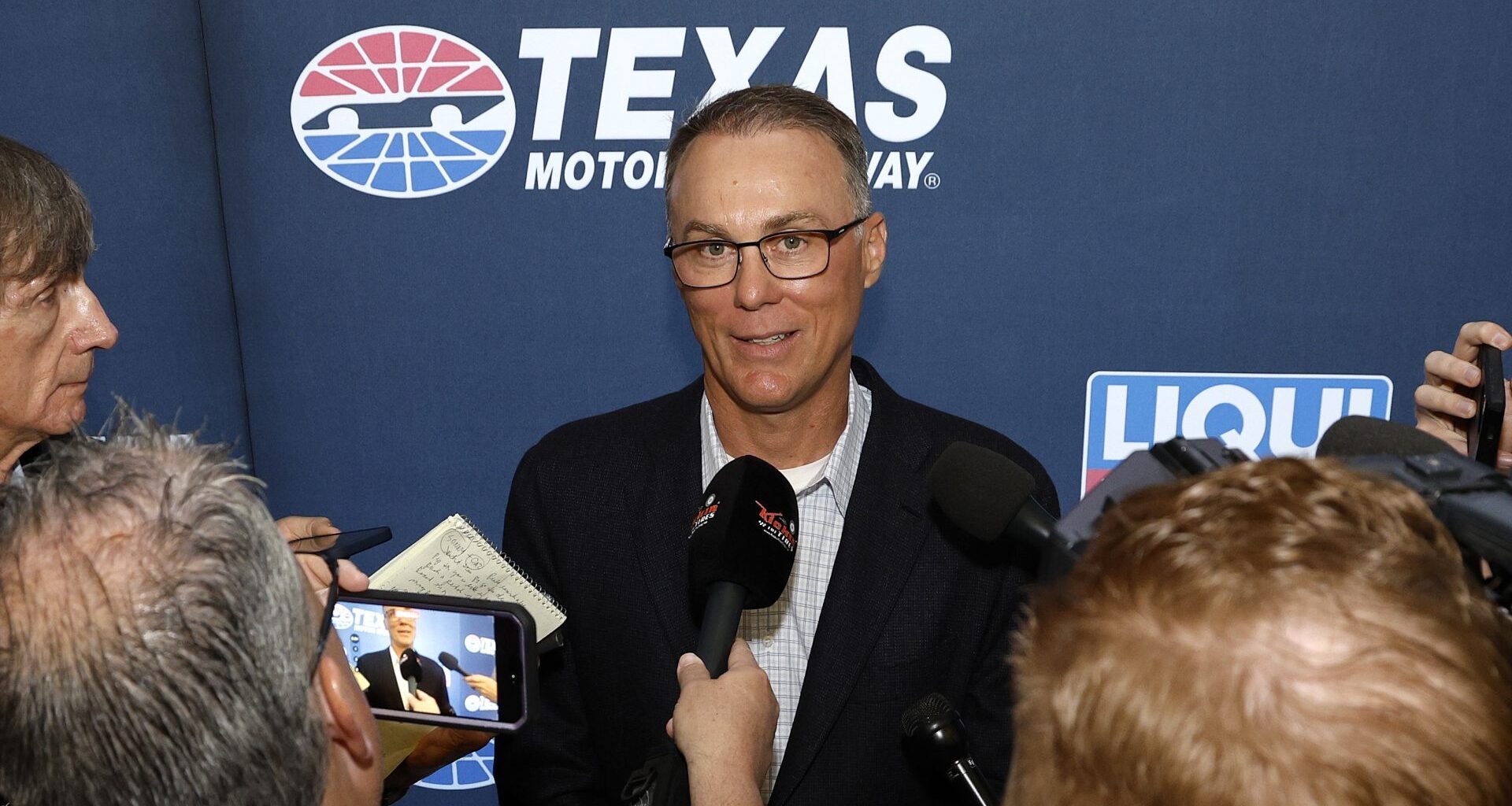
Getty
FORT WORTH, TEXAS – MAY 02: Retired NASCAR Cup Series driver, Kevin Harvick, and 2025 inductee to the Texas Motorsports Hall Of Fame speaks to the media during the Hall of Fame Luncheon at Texas Motor Speedway on May 02, 2025 in Fort Worth, Texas. (Photo by Sean Gardner/Getty Images)
On a recent episode of Kevin Harvick’s Happy Hour, the 2014 NASCAR Cup Series champion turned commentator reignited an old debate: should NASCAR keep racing on Saturday nights?
“Why do we ever race on a Saturday night? It makes no sense. Makes zero sense,” Harvick said. “Just look at the TV ratings when you get done. I know it’s football season, but the TV ratings are historically completely well known by everybody in the industry that it does not score ever, ever, ever, ever on a Saturday night.”
“We went from Saturday to Sunday at Richmond, and the TV numbers go up. We go from Sunday to Saturday, and the crowd goes up. I’m more concerned about the TV ratings than I am how many people are sitting in the grandstands because that’s what makes it go around. I don’t care what anybody wants, Sunday races rate better than Saturday.”
Harvick backed his frustration with numbers. Richmond Raceway’s Saturday night Cup Series race in 2025 brought in just 1.39 million viewers, a steep 37% drop from the prior year’s Sunday event at the same track, which drew 2.22 million. For Harvick, the pattern is clear: Saturday races simply don’t deliver on TV.
TV Ratings vs. Fan Experience
The issue, Kevin Harvick stressed, isn’t just about one race, it’s historical. He believes NASCAR should prioritize maximizing TV ratings, which fuel media deals and the sport’s long-term stability.
Not everyone agrees. NASCAR journalist Jeff Gluck highlighted the Richmond decline on social media, sparking fan and driver responses. Ryan Blaney defended Saturday night races, saying they matter for the industry and help drivers maintain balance in their personal lives according to Rajnish Kumar of Essentially Sports.
Fans also pushed back, arguing that tradition matters. Iconic events like the Bristol Night Race remain fan favorites.
“I think part of the reason the ratings are low is NASCAR doesn’t do a great job of letting the fan base know which races are on Saturday. If these races were promoted as Saturday night races with 3 weeks lead time, rating will improve dramatically.” per TwangriLa a fan.
Kyle also have this to say, “I love it! If I have a race to pick to go watch in person #1 under the lights is always the best. #2 Saturday night because then you have Sunday to recover before going back to work. The problem is we are losing fans because of many reasons. Our problem isn’t Saturday night racing.”
Cogito also added that, “Saturday night races are not the problem.The problem is the way NASCAR runs itself.”
The Changing Media Landscape
Harvick’s comments land at a time when NASCAR is reshaping its broadcast strategy. The sport’s recent $7.7 billion TV deal, featuring new streaming partners like Amazon Prime Video and Warner Bros. Discovery, has shifted the conversation around ratings.
While overall viewership dipped five percent in 2023 (averaging 2.86 million), NASCAR still secured a 40% increase in annual rights fees. For executives, the focus is now on reach across platforms rather than just traditional Nielsen numbers.
But Harvick argues that no matter how the media landscape evolves, Sunday races remain the sport’s strongest bet for viewership growth and mainstream appeal.
Balancing Tradition and Growth
The heart of the debate is whether NASCAR should lean into tradition or chase new strategies. Kevin Harvick has positioned himself firmly on the side of protecting Sunday racing’s dominance, even if it means clashing with fans who love Saturday spectacles.
NASCAR’s challenge moving forward will be to balance TV demands with the culture and traditions that make the sport special. Cutting Saturday nights entirely may be unrealistic, but Harvick’s sharp criticism highlights just how high the stakes are when TV numbers and fan loyalty collide.
Dogli Wilberforce is a sports writer who covers NASCAR, Formula 1 and IndyCar Series for Heavy Sports. With bylines at Total Apex Sports and Last Word on Sports, Wilberforce has built a reputation for delivering timely, engaging coverage that blends sharp analysis with accessible storytelling. Wilberforce has covered everything from major football transfers to fight-night drama, bringing readers the insight and context behind the headlines. More about Dogli Wilberforce
More Heavy on NASCAR
Loading more stories

